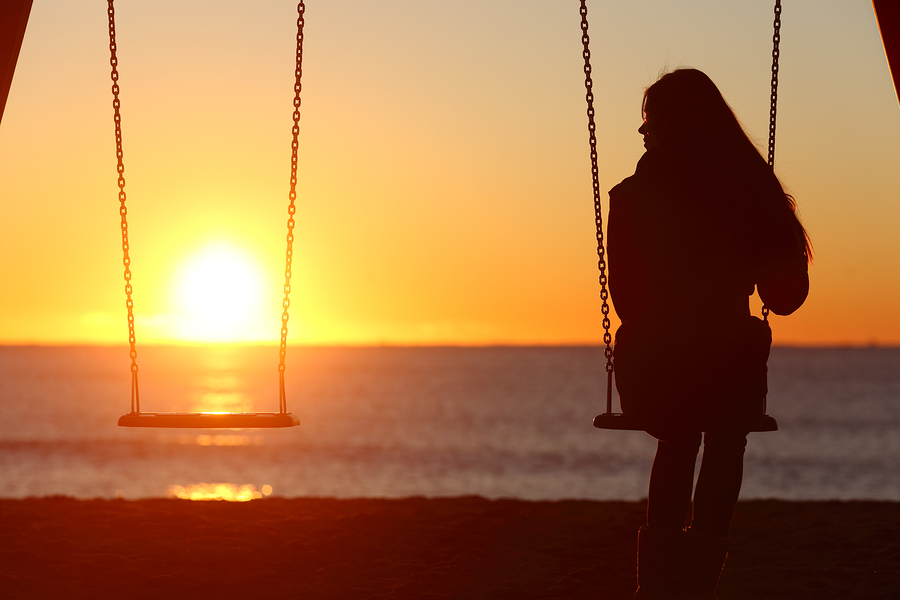Marriage on Fire
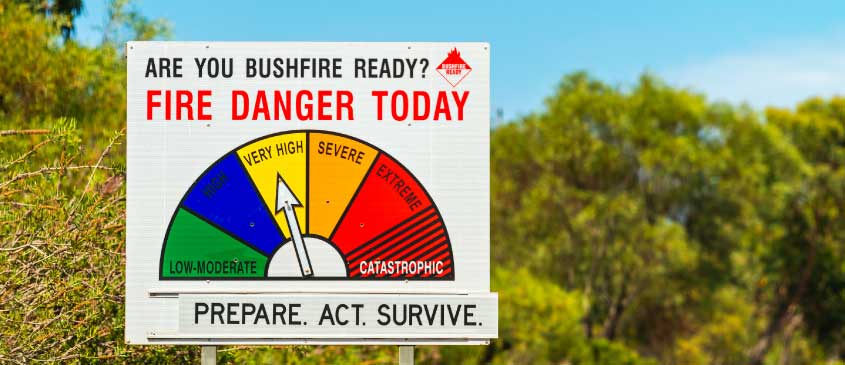
At the time of writing, fires are still blazing across the Australian landscape with many tragedies of life and property lost. Even if not directly impacted, many of us have friends, family and colleagues who are. And it is not over yet.
In our case, Christmas Day saw Byron and two of our sons depart the festivities early to head to our own bush property south of Sydney to assist neighbours and local volunteers protecting property. In shifts with other family members over the ensuing 10 days we monitored the fire front, cleared roads of fallen trees and assisted neighbours protecting their property. It was hot, dirty and at times dangerous work. While most of the 3100 acres of our property were burned through, we were fortunate in not losing any buildings.
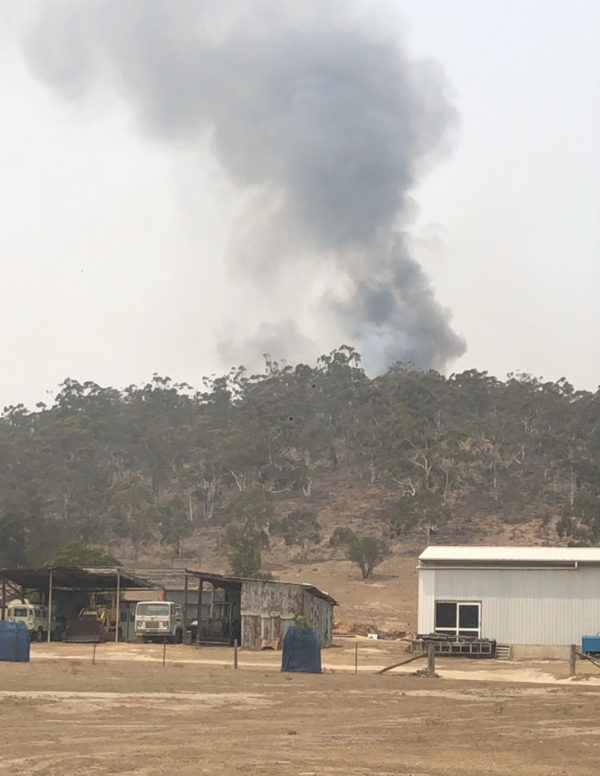
The view from the back of the house of the approaching fires. None of our sheds, the house or new fencing was lost.
Australia is the most fire-prone landscape in the world, with about 5% of its landmass burning each year on average. But not every year is the same and this year two preconditions collided: prolonged drought and accumulated fuel load. With these preconditions it just took the normal summer condition of heat and wind along with lightning strikes, accidents and occasional arson to create what has become a catastrophic fire season.
From bush to marriage
Watching our country burn, reminded us of the similarities this situation has to our marriage. Every marriage, ours included, has ‘bad fire seasons’. It’s inevitable; when two people commit their lives to each other and then get busy, tired and stressed, we can only expect trouble. Usually these stressors come and go and we survive but occasionally they can be far-reaching in their impact.
Like the Australian bush, there are also predictable preconditions that can set the scene for coming marital trouble, even when we don’t know what the trigger will be, nor its timing.
1: Prolonged Drought – our bush property was bone dry, starved of life-giving water over many years. There was not a blade of grass on the paddocks. The gums with their deep roots were surviving but were clearly stressed. The shallow rooted plants had long ago died.
So, also, we can see times in our marriage where it is similarly bone dry. We are still committed to each other, but we are flying through life at a furious pace, barely stopping to enjoy each other, let alone have meaningful conversation and romance. The life-giving intimacy that helped nurture and enrich our marriage is sidelined by busyness. Feelings of loneliness and disconnection thus become normalised.
In this state, our marriage, like our bush, is vulnerable to any spark, irrespective of whether its source is inside or outside our relationship. Trouble is inevitable as long as we remain in this state of barren neglect.
2: Fuel load – a walk around our property was a bit like walking through a dispersed wood pile. The last bush fire that had moved through was in 2001 and so we had some eighteen years of fallen trees, branches and leaf litter accumulated. It was impractical to clear and its decomposition was slowed by the prolonged drought. There was no shortage of material to fuel a fire.
Our marriages likewise can have an accumulation of ‘litter’ to fuel trouble; past hurts and disappointments that haven’t been forgiven, little misunderstandings that were never clarified, frustrations that were never resolved. Like the bush, each alone can seem trivial, but collectively they amount to a great mass of resentment, ready to be ignited.
Typically, we are surprised when something quite small gives rise to a raging inferno between us. Yet, these ‘small’ issues never exist in isolation; they are one part of a huge stock pile of accumulated hurts and disappointments and like the fuel load in the bush, one tiny spark and the whole lot ignites.
Just like we need controlled burns in the bush to manage fuel loads, in our marriage we need proactive action to regularly address the emotional injuries and frustrations that plague every relationship and, if not resolved, accumulate with deadly, destructive potential.
Taking Action
The good news is we can proactively work in our marriage to avoid droughts and diminish the accumulating fuel load.
Regular rain enriches the landscape, and gentle soakers are far superior to downpours. Likewise, in marriage it’s the small everyday things we choose to do for each other that keep the relationship well-hydrated.
Date nights, small gestures of generosity towards each other, and words of gratitude are all like gentle rains. None are huge efforts, but they soak deep into the substructure of our relationship to nourish it at its roots.
Finding ways to clear accumulated hurts and disappointments are also critical. There are skills we can learn to that help us recognise when we are carrying hurts, provide ways to process them and frameworks to reconcile effectively.
While these skills aren’t particularly difficult, they don’t come naturally nor are they typically taught in families or at school. So, think about reading a good book or attending a couple’s course on marriage and relationship skills.
Skilling up in our marriage is one of the most important ‘hazard reduction’ strategies we can do. If you are wondering where to start, take a wander through www.smartloving.org where you can find articles and online courses.
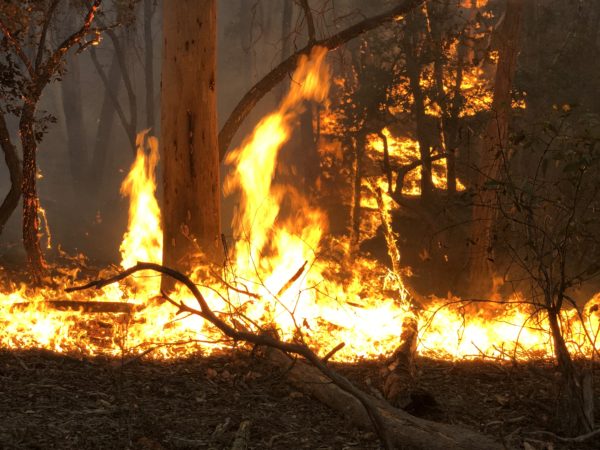
Keeping it in perspective
Finally, it’s important to keep perspective. Based on the media coverage, we assumed that the statistics on this fire season, would be unprecedented. In fact, they are not; on the measures of land area burned or lives lost this year is by no means the worst in recent memory yet alone record setting.
Likewise, in our marriage. When we are in the midst of a firestorm argument, it’s easy to think the situation is catastrophic and unsurvivable. Sometimes it has certainly felt that way to us.
Yet sure enough, our raging frustration subsided, enriching rains came and new shoots appeared in our relationship. It took effort but, like our fire-ravaged landscape, we always managed to recover by implementing simple disciplines, emerging from the other side with renewed hope.
We have come to recognize that sometimes, as hard as it was at the time, the troubles we went through were a necessary reset – forcing us to face into and deal with the accumulated ‘fuel load’ we were choosing to ignore.
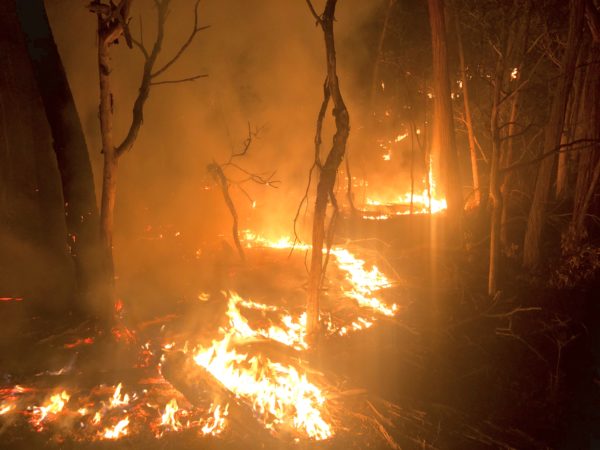
Prepare, Act, Survive
One of the critical things for survival in bush-fire season is to have a plan, prepare for it, and then act decisively. Our fire safety plan at the property is updated annually in discussion with the other two owners. We have a fire-fighting trailer with a pump and water tank that is serviced each year and we maintain alternative routes to exit the property if the main access road becomes blocked.
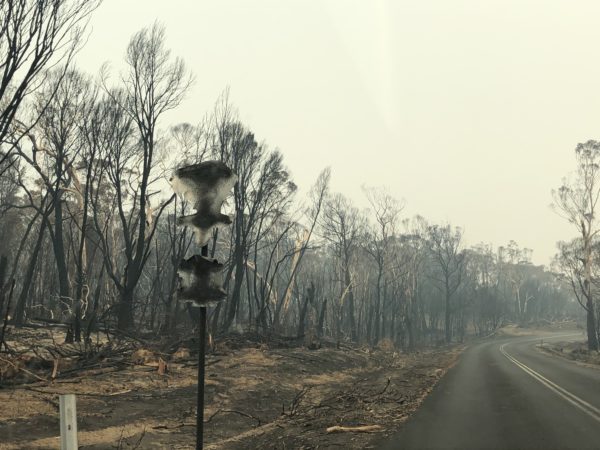
If catastrophe strikes, we’re ready for it, and we have a survival plan. This planning allowed us to stay and fight the fire front safely.
Too many of us though don’t have a survival plan for our marriage. We assume the fires will never come, or that we will be able to improvise if they do. It’s a strategy that is failing marriages at an alarming rate and it’s often completely avoidable.
Whatever our preferred methods for hydrating our relationship, it’s important to do it consistently and often to get the deep nourishment. For our hazard reduction strategy – whether it’s something we do on our own, or as a couple, in person or online, the format is a secondary consideration.
The important thing is to have a plan, and act on it. Anything that hydrates our marriage or addresses the fuel load reduces long-term risk of marital breakdown; which is tearing through almost half the marriages in our society. And that’s a statistic that puts the bush fires into perspective!


